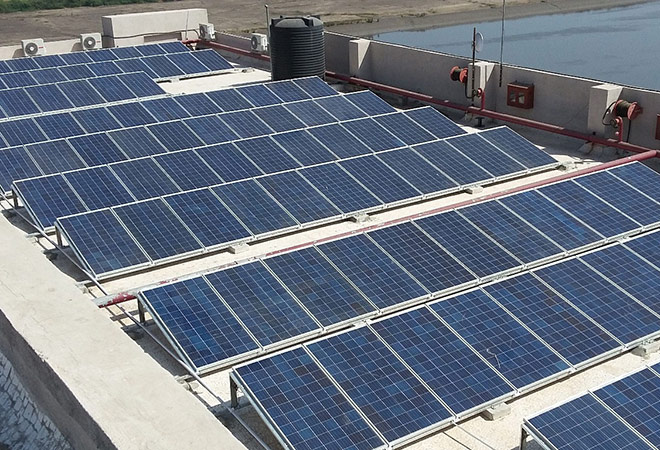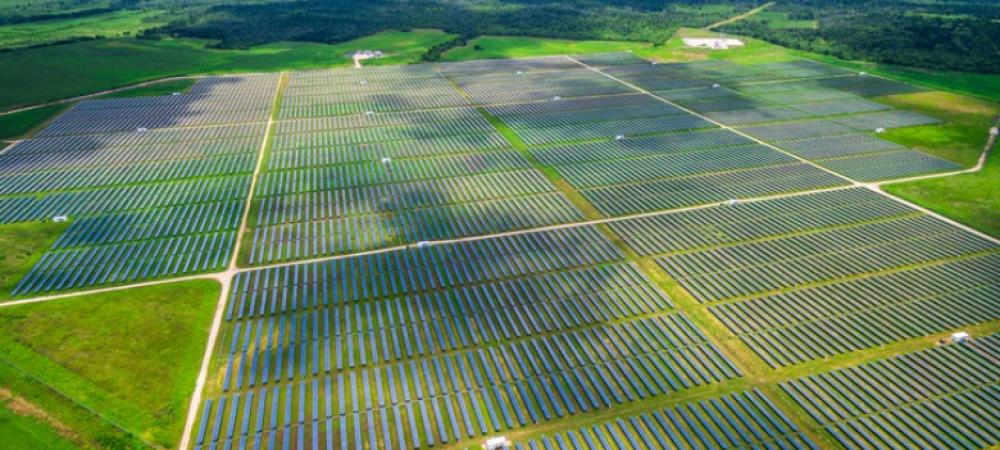The government will consider changes to the safeguard duty imposed on solar cells imported from China and Malaysia only after the next hearing in the Odisha High Court that had stayed the levy, three people with the knowledge of the matter told BloombergQuint.
The government will submit its notification to the court along with the reasons cited by the Directorate General of Trade Remedies to increase the safeguard duty in its report, said the first of the three officials. It will then decide whether to roll it back or not, the official said.
As of today, the notification to hike the duty stays, the second official quoted earlier said.
On a petition filed by Acme Solar Holdings, the Odisha High Court ordered on July 23 that the central government should not issue any notification to impose the duty. The Department of Revenue, however, imposed the safeguard duty on July 30.
The government didn’t receive a copy of the judgment, and it was also not available on the court’s website when the gazette notification was issued, the officials quoted earlier said.
The court will now hear the matter on Aug. 20, according to its order—BloombergQuint has obtained a copy of it.
Emailed queries to the Ministry of Finance remained unanswered.
India imposed the safeguard duty for two years effective July 30 after Indian Solar Manufacturers’ Association filed an application late last year, saying the domestic industry sustained heavy losses due to a surge in solar cell imports. A July 26 parliamentary panel report also said the dumping of Chinese solar panels resulted in loss of nearly two lakh jobs as about half of India’s domestic industry capacity remained idle.
A levy of 25 percent has been imposed for imports in the first year starting July 30, and 20 percent and 15 percent for the two subsequent six-month periods, respectively. But confusion persists over the notification’s status due to the court order.
Forum Shopping?
The Madras High Court had dismissed a similar petition in April that challenged the Directorate General of Safeguards’ recommendation of 70 percent safeguard duty on import of solar panels and modules. The petitioner, Shapoorji Pallonji Infrastructure Ltd., claimed that had not been given enough time to respond during the investigation.
Solar developers are moving different courts to seek a judgment in their favour, the official said.
Acme had earlier moved Delhi High Court challenging a 70 percent safeguard duty proposed by Directorate General of Safeguards on solar equipment. The court disposed of the petition as the government counsel informed the court that DG Safeguards recommendations were not binding. The petitioners were told by the judges that they could move a fresh petition if the government takes such a step, according to the court’s order.
However, after the duty was hiked, the petitioner moved the Odisha, and not Delhi High Court, said the first official.
Questioning the use of term “forum shopping”, Shashi Shekhar, vice-chairman of Acme Solar Holdings, said it’s unfair to impose safeguard duty without any notice.
Acme Solar Holdings, which participated in the Indian solar auctions in 2018, and won bids to implement capacity of 1,325 megawatts. Shekhar said the duty will result in tariffs rising by nearly Rs 3 from the current Rs 2.44 per unit.
Solar capacity addition may not exceed 30,000 MW, he said, adding: “Utilities won’t buy such expensive power unless they’re incentivised.”
Shekhar said solar developers have urged the government to provide interest subvention, or grant, of 2 percent to domestic solar cells manufacturers. “The government can reserve projects in which solar cells made by domestic companies can be used for rural electrification.”











Recent Comments